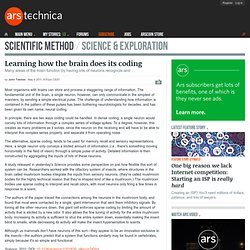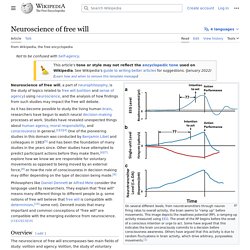

John Tomczak
Apart of the Miltown's Rise to Global Prominence.
Instagram. Untitled. Abstact, Supernatural. Are Humans Turning Into Gods?
Milwaukee's Hip-Hop Scene. Mind and Brain. Meditation. Neuroscience. Neuroscience. Learning how the brain does its coding. Most organisms with brains can store and process a staggering range of information.

The fundamental unit of the brain, a single neuron, however, can only communicate in the simplest of manners, by sending a simple electrical pulse. The challenge of understanding how information is contained in the pattern of these pulses has been bothering neurobiologists for decades, and has been given its own name: neural coding. In principle, there are two ways coding could be handled. In dense coding, a single neuron would convey lots of information through a complex series of voltage spikes. To a degree, however, this creates as many problems as it solves, since the neuron on the receiving end will have to be able to interpret this complex series properly, and separate it from operating noise.
The alternative, sparse coding, tends to be used for memory recall and sensory representations. Neuroscience of free will. Neuroscience of free will is the part of neurophilosophy that studies the interconnections between free will and neuroscience.

As it has become possible to study the living brain, researchers have begun to watch decision making processes at work. Findings could carry implications for our sense of agency and for moral responsibility and the role of consciousness in general.[1][2][3] Relevant findings include the pioneering study by Benjamin Libet and its subsequent redesigns; these studies were able to detect activity related to a decision to move, and the activity appears to begin briefly before people become conscious of it.[4] Other studies try to predict activity before overt action occurs.[5] Taken together, these various findings show that at least some actions - like moving a finger - are initiated unconsciously at first, and enter consciousness afterward.[6] A monk meditates. Overview[edit] -Patrick Haggard[6] discussing an in-depth experiment by Itzhak Fried[13] Criticisms[edit]
Neuroscience, free will and determinism: 'I'm just a machine'. What does this mean in terms of free will?

"We don't have free will, in the spiritual sense. What you're seeing is the last output stage of a machine. There are lots of things that happen before this stage – plans, goals, learning – and those are the reasons we do more interesting things than just waggle fingers. But there's no ghost in the machine. " The conclusions are shocking: if we are part of the universe, and obey its laws, it's hard to see where free will comes into it. "If you see a light go green, it may mean press the accelerator; but there are lots of situations where it doesn't mean that: if the car in front hasn't moved, for example. Slowly, however, we are learning more about the details of that complexity. Neuroscience. A reason for capitalists to care about Quantum Physics.